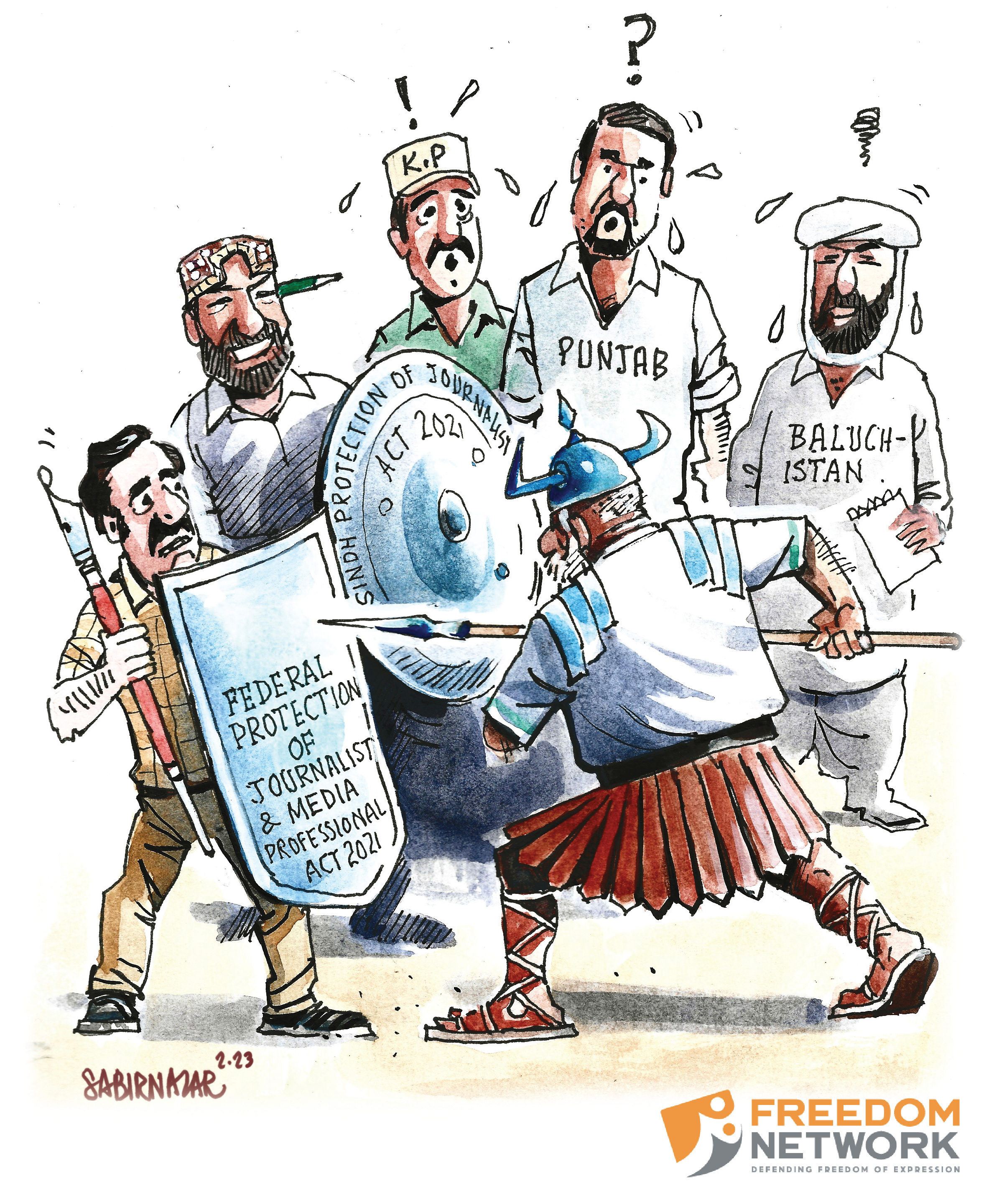Alarmed by the draconian nature of a cyber-crime bill that a Pakistani parliamentary committee approved last week, Reporters Without Borders (RSF) and its partner, Freedom Network [FN], are calling for a complete overhaul of the bill before its final adoption and, to this end, are offering detailed recommendations.
Portrayed as a response to the growing threat of cyber-terrorism, the latest draft of the Prevention of Electronic Crimes Act falls far short of protecting against cyber-attacks and instead undermines civil liberties in Pakistan and flouts freedom of the media and information.
Approved by the national assembly’s Standing Committee on Information Technology and Telecommunication on 16 April, the bill contains provisions that would allow the government to censor any content without referring to judge, to use overly broad criteria to criminalize many online activities, and to gain access to Internet user data without any judicial control.
“This bill poses a real danger to democracy in Pakistan,” said Benjamin Ismaïl, the head of the Reporters Without Borders Asia-Pacific desk.
“The law curtails journalists’ access to information from the ‘sources’ which are otherwise accessible even without the presence of right-to-information regime. Criminalizing the leaking of information by whistleblowers is tantamount to infringement of right-to-information and curbs free expression in Pakistan,” Aurangzaib Khan, a journalist who is also working for Freedom Network, Pakistan first media watchdog organization, reacted to the alarming situation.
“If adopted in its current form, the law would result in unprecedented self-censorship by all the media, especially those critical of the government, so we call for a complete revision that takes account of our recommendations,” the two organizations added.
One of the most controversial articles would allow the government to block content :
if it considers it necessary in the interest of the glory of Islam or the integrity, security or defence of Pakistan or any part thereof, friendly relations with foreign states, public order, decency or morality.
For media laws expert Muhammad Aftab Alam, section 34, which mentions the article 19 of the Constitution is problematic : “using certain parts of any constitutional provision in any other statutory law without its specific context is against the spirit of the Constitution. It is therefore unconstitutional to leave this to a statutory body like PTA or its authorized officer to decide about the fundamental right of citizens and block or remove any information from any website.”
“Any government authority, including PTA, must not have any role in contents management by blocking a website or anything else. A broad-based representative civil society body with adequate authority/power should be mandated to do contents audit.”
Another section entitled “spoofing” would criminalize online satire, which would be punishable by three years in prison. Encryption software and the virtual private networks (VPNs) that many Pakistanis use to circumvent the blocking of YouTube and other websites could be rendered illegal.
READ THE RECOMMENDATIONS OF RSF AND FREEDOM NETWORK (pdf)
This is not the first time Pakistan has tried to crack down on online information and reinforce surveillance. In February 2012, the information technology ministry invited companies to bid for the creation of a national Internet filtering and blocking system based on the Great Firewall of China.
Reporters Without Borders has repeatedly criticized the actions of the Pakistan Telecommunication Authority, most notably on 12 March 2014, World Day Against Cyber-Censorship. See the 2014 Enemies of the Internet report.
Pakistan is ranked 159th out of 180 countries in the 2015 Reporters Without Borders press freedom index.



